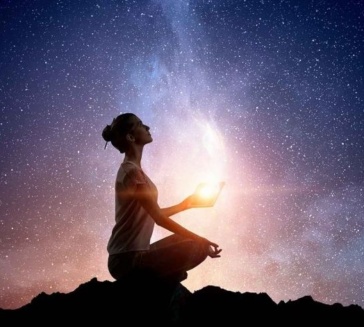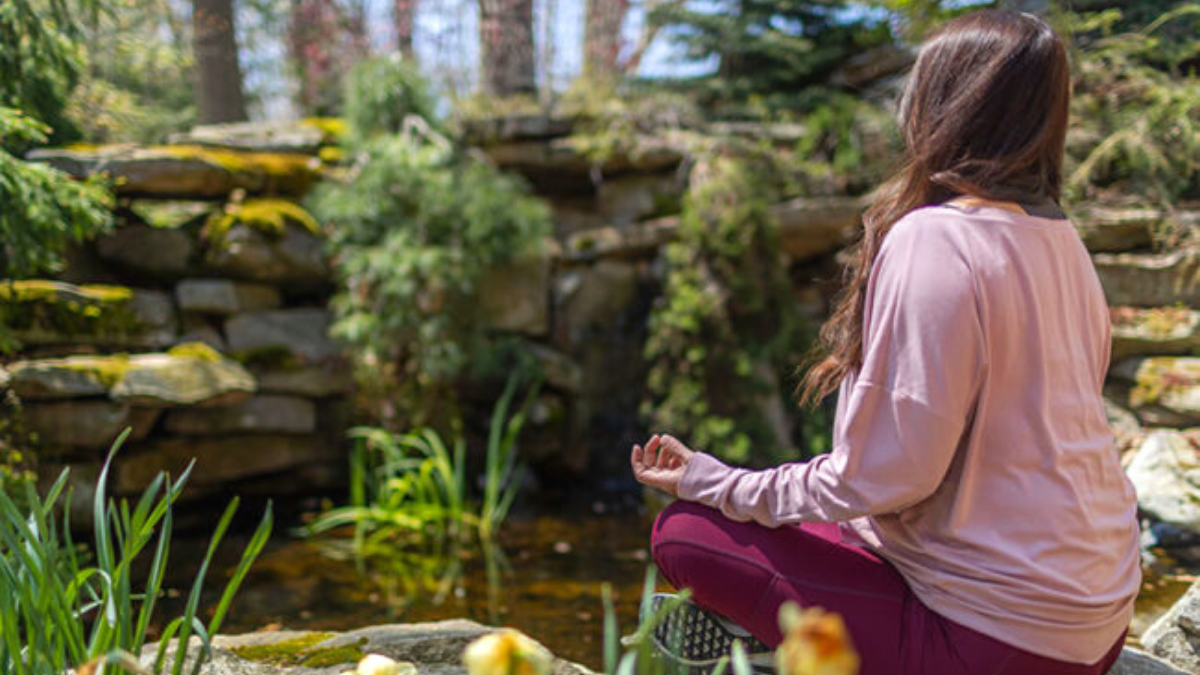The twenties are a difficult phase of life. This is when one experiences a quarter-life crisis where doubt creeps in and one isn’t sure of what the next logical step is. This is where meditation can do wonders by giving deeper self-awareness to those in their teens and early twenties. It helps them listen to their inner, intuitive wisdom for taking crucial life decisions. The habit of meditation is also easier to integrate into one’s life during these early years. Learn more about why the teens and twenties are one of the best times to learn to meditate.
The twenties are a difficult phase of life. This is when one experiences the quarter-life crisis which though common, isn’t talked about as much as the mid-life crisis. Doubt creeps in and one isn’t sure of what the next logical step is. Lost in a maze of a hundred opportunities, it’s naturally difficult to know which way to choose.
It’s also scary to think that this could be the defining decade of your life. Even if it’s not, it surely shapes your life in a significant manner. All this adds to the anxiety of making the right choice from the plethora of options available.
Yael Shy, author of ‘What Now? Meditation for Your Twenties and Beyond’ felt the same. She says, “The stress in my life peaked during my college years. My preoccupation with life’s philosophical questions felt like existential anxiety and translated into concrete symptoms for me. I had panic attacks, trouble sleeping, and felt lonely all the time.”
Her experience is sadly common. For someone who’s not grounded in oneself, the period of youth and transition into adulthood can be challenging. This is a period where we leave a lot of friends and change environments rapidly.
We go from school to college and then enter the ‘real’ world which can be a painful shift, if not handled with care. To add to this, your personal life can also be a roller-coaster; you might have to leave behind a relationship or have to part ways with your friends and family.
In short, these years are filled with intense emotions and insecurity. You worry if you’ll ever find work that you’re passionate about. You miss home. You miss close friends. You’re lost in the noise of how you think you should be living and worried about wasting the best years of your life.
Shy has found the same true, not only for herself but even for her current students. She adds:
“When I work with students at NYU I’ve seen the same kind of thing happen. They think that the anxiety in their life is just part of life and it’s just terrible. I think it’s hard to appreciate how much of your mind is creating your reality, especially when you are young.”
In light of all these facts, there’s both good news and bad news. The bad news is that these anxieties, doubts, and fears are just a natural part of life. The good news is that meditation can help you transcend them and be calm amidst the chaos. Here’s how.
Meditation Gives You Deeper Self-Awareness
“Intuition is a very powerful thing, more powerful than intellect, in my opinion. That has had a big impact on my work.” — Steve Jobs
Often when we’re confused about our future, we look up to people around us for inspiration and solutions. Moreover, with the advent of social media, we can instantly tune in to anyone from around the world to see what others like us are doing.
Thus, we carve our path based on what others think is right. This, to me, seems like the default approach for youngsters to decide their future. I’m not saying that this approach will fail to produce success. Rather, it will not give you the best chance of having a deeply satisfying life.
Lost in the noise of the world, it’s too easy to forget looking in the most important place — within ourselves. What your intuitive, inner voice tells you is, in most cases, the right path to choose.
The problem is that we’re not attuned enough to listen to that voice. We distract ourselves with outward preoccupation and avoid the work required to nurture our intuition.
In a 2005 Stanford speech, Jobs credited his intuitive mind as having a significant influence on his work. “You have to trust in something,” he said. “Your gut, destiny, life, karma, whatever.” Jobs added, “This approach has never let me down, and it has made all the difference in my life.”
“All great achievements of science must start from intuitive knowledge,” Einstein once told a friend, according to Psychology Today. “At times I feel certain I am right while not knowing the reason.”
Let me also give you a personal example. From age 17 to 19, I was obsessed with the entrepreneurship culture. It seemed the best career option to me. I started my own business and worked with clients all over the country in hopes of building a great company. Yet, while I was successful to some extent, the success was hollow. I wasn’t excited to wake up most mornings. There was no fire in my belly every time I thought about the future. Instead, there was a constant fear of failure.
Fortunately, when I learned meditation, I listened to my inner voice and came to live a life of service where I can share spiritual teachings with others and be with like-minded souls. I also re-discovered my love for writing. I used to write before as well, but I never listened to my heart when it told me to write more. Being mesmerized after seeing successful businessmen, I instead got tricked into believing that their way of life will make me happy.
If I had not come across meditation, I would have never had the strength to admit the truth to myself. I would have been stuck in the same never-ending loop of unhappiness.
So it is, that no matter what you do, your intuition will always be your best advisor. It’s best to develop intuition early in life. If your decisions are guided by intuition from the start, you’ll end up much happier.
Meditation is Easier to Integrate Into Your Life When You’re Young
I’ve heard of and seen many people who have spent their lives chasing material success, only to reach midlife and realize that this isn’t what they wanted.
They then adopt practices like meditation and start a spiritual life of service and devotion. However, they often regret the fact that they wasted the first few decades of their life when they had more energy.
Though the “right time” to try meditation is different for everyone, if given an option, people would choose to do it earlier in their lives instead of spending years doing something that will not make them happy. By having your spiritual needs clear from the start, you can work towards integrating them into your life. It’s much easier to mould clay when it’s soft than when it’s hard.
Yoganandaji said that after one’s forties, a person becomes too set in one’s habits and finds it difficult to make a drastic change in attitudes. It doesn’t mean that it can’t be done, but just that one has to face more resistance to overcome old tendencies.
Another reason for getting started early is you get to integrate your career with your spiritual beliefs as well. You can choose a career not only to make money but also to grow spiritually, which will allow you to live a much more balanced life.
The possibilities are truly unlimited when you come across your calling and tread on your chosen path fearlessly. As Swami Kriyananda says in the Essence of Bhagavad Gita, “wise is one who when the chance comes to seek God, grasps it with both hands.”
Meditation is the True Source of Wisdom
“Meditation brings wisdom; lack of meditation leaves ignorance. Know well what leads you forward and what holds you back, and choose the path that leads to wisdom.”— Buddha
 The thinking mind is helpful, but it has its limitations. Think about the last time you were pulling your hair out to make a decision. You may have had sleepless nights, trying to figure out different options you can take, all of them leading nowhere.
The thinking mind is helpful, but it has its limitations. Think about the last time you were pulling your hair out to make a decision. You may have had sleepless nights, trying to figure out different options you can take, all of them leading nowhere.
Suddenly, the next day, you go into the shower and the answer comes to you. We all love those ‘Aha!’ moments. Well, taking multiple showers a day may not help you produce that state at will but meditation can!
When the thoughts quieten and the mind starts to become still, amazing things can happen. You start to see your thought patterns from a state of detachment. The voices of society, parents, friends, teachers, etc, become clear. You realize that these voices are not your own.
You can then zoom out of the situation and figure out the best solution — without needing to consciously work out the problems.
I’ve found many insights come during meditation that help me decide the right path to take. We might fret over a problem for weeks, but by accessing soul wisdom through meditation, we can instantly know the answer.
When you’re confused among choices that can set the course of your life, it’s best to go by what your intuition says than going by outward influences.
Final Thoughts
There are many reasons why meditation is good, especially for those in their twenties. It teaches us fundamental skills like concentration and willpower, develops our intuition, helps us to connect deeply with others, builds self-awareness and confidence, and helps us find our true calling.
Also, it’s easier to start meditating when you don’t have many responsibilities and distractions, thereby laying a strong foundation for a lifelong practice.
There are many other benefits of meditation that I can’t possibly list in one article, but it’s enough to say that it has changed my life completely. I strongly believe that it can help everyone who’s just getting out into the world on their own, by giving them the courage to face life’s challenges.
The sooner you start, the better off you’ll be. So start now!
If you’re looking for instructions and guidance in meditation, register for the upcoming Ananda course, “Learn to Meditate,” which teaches the basics of meditation and how to establish your practice. It is also the first step on the path of Kriya Yoga, which is an advanced pranayama technique popularized by Paramhansa Yogananda in the 20th century, as an effective tool for Self-realization. Joy to you!
Related Articles:
https://www.ananda.org/blog/vulnerable-teenage-brain/
https://www.ananda.org/blog/every-day-spiritual-renewal-for-teens/
